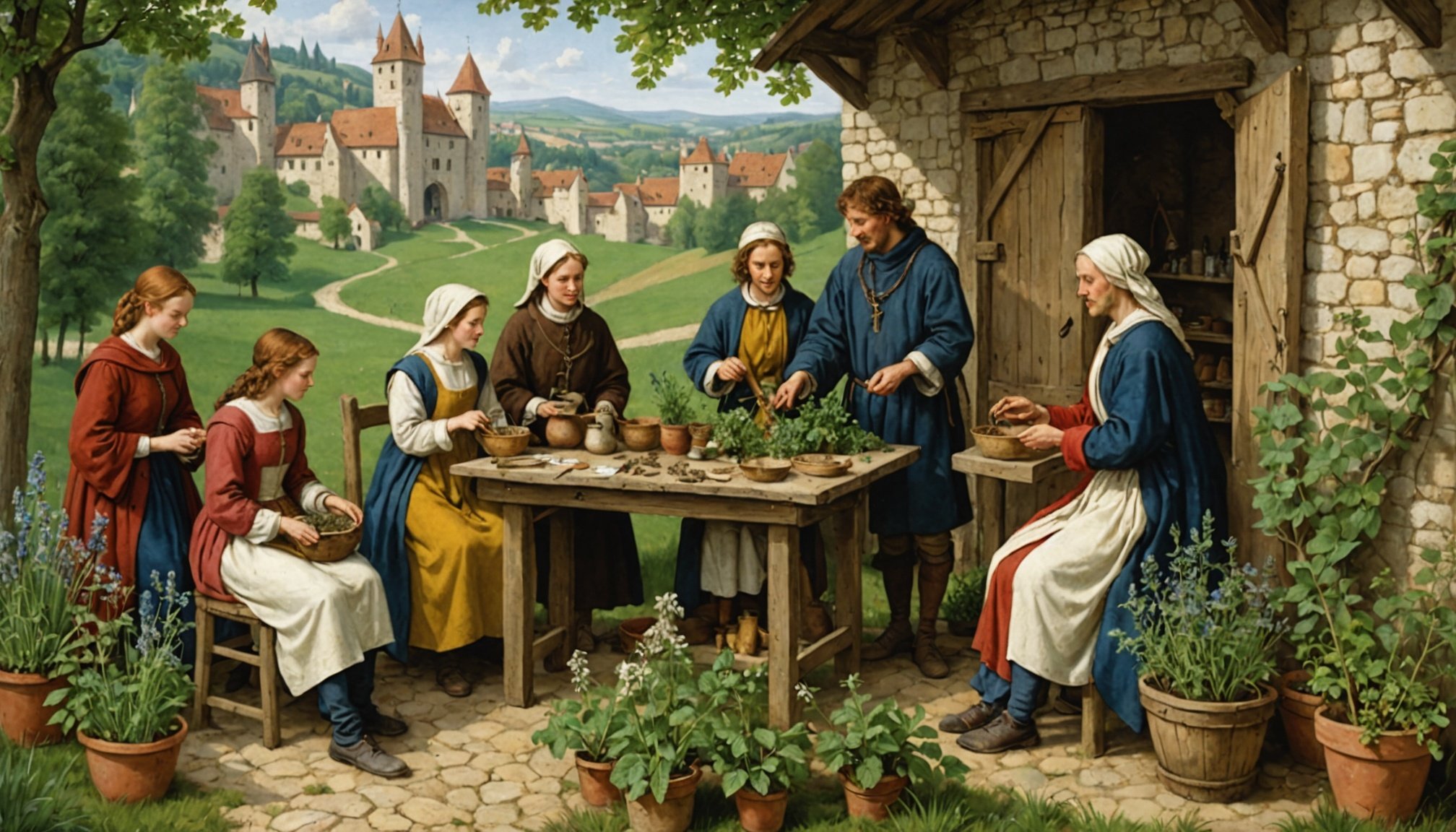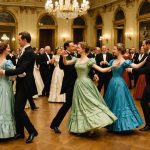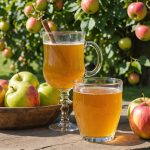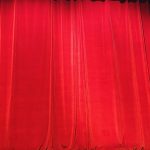Overview of Medieval Herbal Medicine Workshops
Medieval herbal medicine was an essential part of life during the Middle Ages, serving both healing and spiritual needs. These remedies relied on natural ingredients found in the local environment. Knowledge of plants such as sage, basil, and rosemary was highly valued and passed down through generations. Today, workshops offer tourists a chance to explore this fascinating aspect of history.
These workshops for tourists provide a unique experience, combining education with hands-on activities. Participants not only learn about traditional herbal practices but also gain an appreciation for medieval society’s intimate relationship with nature. This interaction with historical educational activities enriches the experience, offering an authentic glimpse into the past.
Have you seen this : Discover Exciting Edwardian Era Ballroom Dancing Experiences for Tourists
Visitors can expect to engage in various practical sessions. These could include identifying medicinal plants, crafting simple remedies, and understanding the historical context of medieval healing methods. From blending teas to creating ointments, tourists are encouraged to explore and immerse themselves in the creative process.
By offering these workshops, organisers aim to deliver a memorable and informative experience that resonates with the growing interest in natural health and sustainable practices. This approach not only captivates but also educates visitors on the enduring legacy and relevance of medieval herbal medicine.
Have you seen this : Discover Authentic British Pie Making: Top Workshops for Tourists to Master Traditional Techniques
List of Engaging Workshops
Exploring the various types of workshops available today offers numerous hands-on experiences suitable for different interests. Knowledge-seekers can indulge in diverse activities, ranging from gardening techniques to historical insights. Here’s a look at some compelling workshop locations and offerings.
Workshop Location 1: Historical Herb Garden
Delve into the nuanced world of herbs at the Historical Herb Garden, a site brimming with botanical wonders. Participants engage in workshops that accentuate plant identification and proper growth techniques. Scheduling is flexible, with sessions generally available on weekends.
Workshop Location 2: Medieval Apothecary
At the Medieval Apothecary, attendees experience the fusion of history and chemistry. Workshops cover making herbal remedies using medieval techniques. Designed for enthusiasts, these sessions are typically a couple of hours long. Bookings are advisable a week in advance.
Workshop Location 3: Traditional Healing Center
For those interested in holistic health, the Traditional Healing Center offers workshops focused on ancient healing practices. Participants receive hands-on experience in preparing traditional remedies. Workshops are available on both weekdays and weekends, ensuring convenient scheduling options.
Each location sets pricing according to workshop complexity, with varied options to fit different budgets. Embracing these hands-on experiences not only enhances personal knowledge but also enriches one’s practical skills in unique, educational environments.
Activities and Learning Experiences
Participating in interactive activities is an integral part of learning about herbal remedies. These workshops often feature a variety of hands-on tasks, helping participants gain deeper insights into traditional methods. By engaging in these activities, attendees not only learn the theory but also practice creating their own remedies.
One of the central aspects of these workshops is the learning of herbal remedies. Facilitators typically showcase the time-honoured techniques for preparing natural treatments, highlighting their relevance and applications in today’s world. This focus on traditional methods allows participants to appreciate the rich history and cultural significance behind each remedy.
Practical workshops serve as the backbone of these learning experiences, offering invaluable guidance. Participants usually engage in tasks such as identifying herbs, understanding their properties, and mastering the processes of crafting effective remedies. These hands-on opportunities bridge the gap between knowledge and application.
The aim is to empower attendees with the skills needed to integrate these remedies into their daily lives confidently. Through these experiences, they not only learn about the benefits of herbal solutions but also how to make informed decisions about their usage. Embracing these ancient traditions enables individuals to explore holistic health alternatives confidently.
Historical Significance of Herbal Medicine
Herbal remedies played a crucial role in the health systems of medieval history. During this era, access to formal medical treatment was limited, making herbal medicine a cornerstone of daily life. Individuals primarily turned to plants and natural remedies crafted by herbalists. These practitioners were often critical community figures, passing down essential knowledge through generations.
In medieval society, herbalism intertwined with existing cultural practices. Many rituals, festivals, and traditions incorporated the use of herbs, reflecting their deep-rooted significance in daily life. For instance, garlic was thought to ward off evil spirits, while mint was used in rituals for good fortune. These practices highlight the cultural integration of herbal medicine throughout medieval communities.
The evolution of herbal medicine from medieval times to today reveals a fascinating journey. While some traditional remedies have been debunked, many have stood the test of time. Modern science has validated several medieval herbal practices, and contemporary naturopathy still embraces the use of herbs. This evolution underscores the enduring impact and adaptability of herbal medicine, reflecting its importance in both historical and modern contexts. Despite advancements in medical science, the historical significance of herbalism continues to resonate, influencing present-day cultural practices.
Benefits of Participating in Workshops
Participating in workshops offers numerous benefits. One primary gain is the coupling of educational value with interactive learning. People often find that learning in a practical, hands-on environment enhances their understanding and retention of new information. Workshops frequently incorporate activities that stimulate both the mind and emotions, resulting in a more engaging and immersive educational experience.
Another compelling benefit is personal growth. Workshops often serve as a catalyst for self-discovery. Stories from participants, such as realising hidden talents or developing newfound interests, highlight personal development. Sharing these experiences in a group setting can also help build confidence and improve communication skills, fostering professional and personal advancement.
Moreover, workshops centred around specific themes like herbal medicine can offer potential health benefits. Understanding the properties and uses of different herbs may encourage healthier lifestyle choices and improve overall wellbeing. This type of knowledge can be incredibly empowering, equipping individuals to manage minor ailments naturally and safely.
Participating in workshops can be a transformative experience that enhances not only one’s knowledge but also emotional wellbeing and personal growth, making it a worthwhile endeavour for anyone looking to broaden their horizons.
Practical Tips for Tourists
Understanding a new destination is both exciting and challenging. When embarking on a trip packed with workshops, preparation can make all the difference. Let’s lean into some practical travel tips to ensure you get the most out of your journey.
Packing efficiently is key. Always bring attire suitable for your workshop. In many places, business casual is the standard. A quality notebook or tablet is essential for jotting down insights or capturing thoughts during sessions.
Upon arrival, fully engage in workshops by asking questions and participating actively. This not only enhances learning but can lead to memorable connections. Often, locals appreciate curiosity about their culture, so don’t shy away from asking thoughtful questions about local customs or traditions.
Another essential tip is to explore the local culture during your free time. Discovering traditional cuisines or visiting cultural landmarks can enrich your experience and offer a deeper appreciation of the place.
Navigating the blend of work and leisure ensures a fulfilling trip. By preparing thoroughly and embracing both the educational and cultural aspects of travel, you position yourself for a truly unforgettable experience.
















